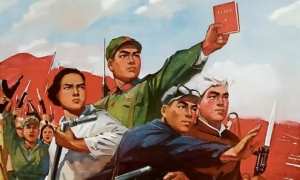Chinese Culture: A Deep Dive into Traditions, Philosophy, and Modern Influences

Introduction to Chinese Culture
Chinese culture, one of the world’s oldest and richest, has a history spanning over 5,000 years. It is deeply rooted in philosophy, art, language, and social values that have shaped not only China but also other parts of East Asia and the world. From the philosophical teachings of Confucianism to the vibrant festivities of the Chinese New Year, the complexities of Chinese culture have fascinated scholars, historians, and global citizens alike.
In this guide, we will explore the essence of Chinese culture, its history, key cultural elements, and how they influence modern-day China, including business practices, relationships, and social norms.
Historical Roots: Ancient China and its Cultural Foundations
China’s history is steeped in deep philosophical traditions, with the Five Classics of Confucianism serving as a cornerstone of its societal values. Confucianism, which emphasizes the importance of family, respect, morality, and harmony, continues to play a vital role in shaping Chinese thought. This is particularly evident in the way Chinese people approach business and family life, with respect for hierarchy and order being central to both.
Moreover, China’s cultural evolution has been influenced by various dynasties over the centuries, such as the Tang, Song, and Ming dynasties, which contributed to significant advancements in arts, sciences, and governance. The Silk Road, an ancient trade route, also played a critical role in spreading Chinese culture, philosophy, and innovations worldwide, leaving lasting marks on global history.
The Role of Family and Social Structures in Chinese Culture
In Chinese culture, family is the cornerstone of society. Respect for elders, filial piety, and maintaining harmony within the family unit are essential values. The Confucian teaching of “孝” (xiào), or filial piety, dictates that children honor and care for their parents and ancestors, forming the foundation of Chinese family dynamics.
In addition to the family, the social structure in China is strongly hierarchical. This can be seen in relationships, whether between parents and children, bosses and employees, or even within communities. In a business context, these hierarchies influence leadership styles and decision-making processes, often resulting in a top-down management structure.
Fun Fact: Chinese New Year, or 春节 (Chūn Jié), is a time when family members, no matter where they are, come together to celebrate. This cultural emphasis on family reunions is vital to Chinese life and showcases the importance of familial bonds.
Chinese Language and Communication
The Chinese language is not only a means of communication but also an integral part of Chinese culture. Mandarin Chinese, the official language, is used by the vast majority of the population. However, many other regional dialects, such as Cantonese, Hakka, and Shanghainese, are spoken across the country.
Language and Business: In the business world, understanding the nuances of language is crucial. In addition to Mandarin, the ability to understand local dialects can enhance interpersonal relationships, build trust, and improve negotiation outcomes. Learn more about how Chinese business etiquette plays into building successful business relationships in our guide on Business in China.
Chinese writing is symbolic, with characters often representing entire concepts or ideas. Calligraphy, the art of beautiful writing, is a revered tradition that connects the Chinese people with their heritage. This aspect of culture also extends into art, where Chinese symbols and characters are often incorporated into paintings, decorations, and modern graphic design.
Philosophy and Spirituality: Confucianism, Taoism, and Buddhism
Chinese philosophy and spirituality have been shaped by several key schools of thought, primarily Confucianism, Taoism, and Buddhism. These philosophies have not only influenced daily life but also provided frameworks for governance, ethics, and personal conduct.
Confucianism: As mentioned, Confucianism focuses on the cultivation of virtue, familial piety, and social harmony. Its principles are particularly relevant in business practices, where the emphasis on hierarchy and mutual respect is fundamental. Read more about Confucianism in our detailed page on its teachings and influence.
Taoism: Taoism promotes the idea of living in harmony with the Tao (the way of nature). It encourages balance, simplicity, and inner peace. Taoist philosophy can influence modern Chinese decision-making, with an emphasis on flexibility and adaptability.
Buddhism: Buddhism was introduced to China from India and has deeply impacted Chinese thought and culture, particularly in terms of spirituality, meditation practices, and views on suffering and enlightenment.
Note: The spiritual philosophies also influence Chinese business culture, emphasizing relationships, trust-building, and ethical decision-making.
Festivals and Celebrations
Chinese festivals play a significant role in promoting cultural values and strengthening social ties. Among the most famous are:
Chinese New Year (春节): This is the most important celebration in Chinese culture, symbolizing the renewal of life, family unity, and the hope for prosperity in the coming year. The holiday is marked by family reunions, feasts, dragon dances, and fireworks.
Mid-Autumn Festival (中秋节): Celebrated with the full moon, this festival symbolizes reunion and thanksgiving. It is celebrated by sharing mooncakes and lighting lanterns, symbolizing the hope for family harmony and prosperity.
Qingming Festival (清明节): A time for honoring ancestors, this festival emphasizes respect for family lineage and filial piety, again showing the strong connection between cultural practices and Confucian teachings.
Modern-Day Influence of Chinese Culture
Today, Chinese culture is increasingly influencing the global stage, not only through the spread of Chinese language and philosophy but also through advancements in technology, art, fashion, and media. The Chinese film industry is gaining international recognition, and Chinese cuisine is beloved worldwide for its diversity and flavors.
Culturally, China has also become an economic powerhouse, blending traditional values with modern business practices. Many multinational companies working in China need to understand and adapt to local cultural nuances to succeed. The rise of the Chinese middle class has brought a new wave of consumption, impacting global markets and industries.
If you are interested in understanding how cultural values shape the Chinese business environment, don’t miss our page on Business in China, where we explore the importance of relationships, respect, and understanding in the business world.
Conclusion: Chinese Culture in a Global Context
Chinese culture is multifaceted, with its deep historical roots, philosophical teachings, family values, and modern global influence. From Confucianism shaping social behavior and business practices to the vibrant festivals and philosophical traditions that continue to guide society, Chinese culture is dynamic and ever-evolving.
As China continues to grow on the world stage, understanding its culture is essential for building stronger relationships, both in business and in personal exchanges. Whether you are looking to explore China’s rich traditions or understand the practical application of these values in modern business, understanding Chinese culture provides invaluable insight into one of the world’s most influential civilizations.






